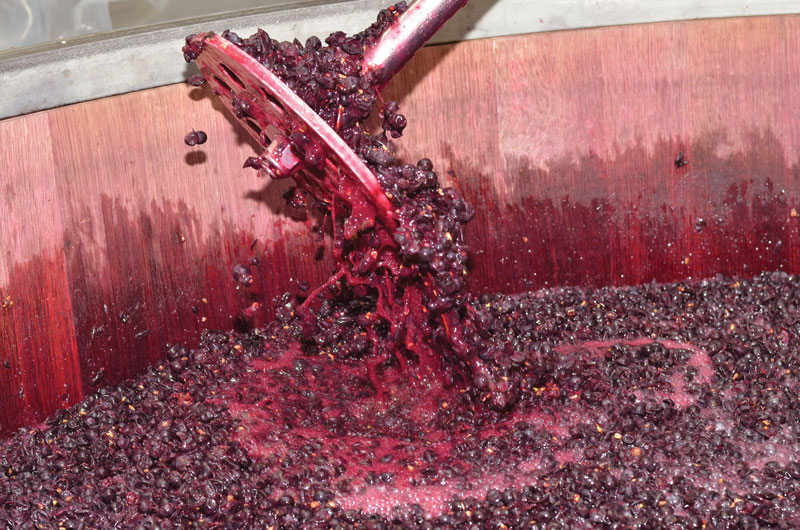Wine Wizard
Topic: Yeast
Yeast Impact on MLF
I’m glad you wrote in this question. It points to the importance of thinking about our wines in the big picture sense (not to mention the importance of double checking before making
Tips For Rehydrating Dry Yeast
Rehydrating dried yeast is a simple and straightforward process, and one that I find to be essential when using dried yeast for winemaking purposes. The simple answer to your question is no,
Campden Tablets Best Practices
The great thing about Campden tablets (a convenient form of dosing in sulfur dioxide for home winemakers) is that they will inhibit the yeast and bacteria you do not want (which are
Effects Of Using Killer Yeast In My Winery?
I’m glad that you are attuned to your yeast and realize that some strains are “killer factor positive” and one is “sensitive.” I really wish that the yeast industry had come up
Wine Yeast to Make Bread
You can definitely use wine yeast for baking bread. Bread yeast and wine yeast are both Saccharomyces cerevisiae and both work the same way, by eating sugar and converting it into ethanol
Yeast choice for a fruit wine
You want to know what my standard, go-to, never-fail, keeps-most-wines-happy yeast is? It’s called Prise de Mousse, EC1118, Davis 796 or Premier Cuvee. Why all the names? I guess so a lot
Over-yeasting?
There are a few effects on a wine if you add more yeast. Number one, the fermentation might start a little faster and go to completion faster because there are simply more
Yeast Pitching Rates
Good for you for branching out. Apple cider has astronomically increased in popularity in the United States in the past few years and I see an increasing number of wineries trying their
Kombucha In My Winery?
Just like I would not let a buddy of mine do any Brettanomyces beer-brewing experiments in my winery, so should you not do Kombucha and wine together in your kitchen (or garage)
What To Consider When Selecting A Yeast
Ah that is a wonderful and complex question. When a winemaker chooses to inoculate for fermentation (which I generally recommend) there are many factors to take into account when making that choice.
Wild Fermentations
Well, I would’ve inoculated right off the bat if I didn’t see anything happening within 24 to 48 hours. Contrary to popular belief, yeast cells that can carry out a complete alcoholic
I recently inadvertently added the wrong yeast to a new batch of frozen Chardonnay juice.
I’m glad you wrote in this question. It points to the importance of thinking about our wines in the big picture sense. Decisions we make in the beginning can affect what decisions
Wine Wizard Revealed & Top 10 Winemaking Questions
A Word From the Publisher And the Wine Wizard is……. “When will my fermentation stop?” “Why did my fermentation stop?” One thing I can count on as publisher of WineMaker magazine is
If a yeast packet says it makes 1–5 gallons (3.8–19L) of wine, what would be the difference between using it for 1 gallon or for 5?
If you use a 1-5 gallon (3.8–19 L) yeast packet for 1 gallon as opposed to 5 gallons, it is likely that your fermentation will proceed faster, have a more yeasty aroma
I did not rehydrate my yeast before I pitched it. How do I do this and what happens if I don’t?
Dear Wine Wizard, I did not rehydrate my yeast before I pitched it. How do I do this and what happens if I don’t? John Eastwood Cleveland Wine Wizard replies: Rehydrating yeast
What is the shelf life for dry yeast? Is there anything I can do to revive it and will it work?
Your yeast packet is almost guaranteed to be past its prime. Yeast cells, even those that have been freeze-dried, certainly do have an expiration date. Using yeast that is more than six
